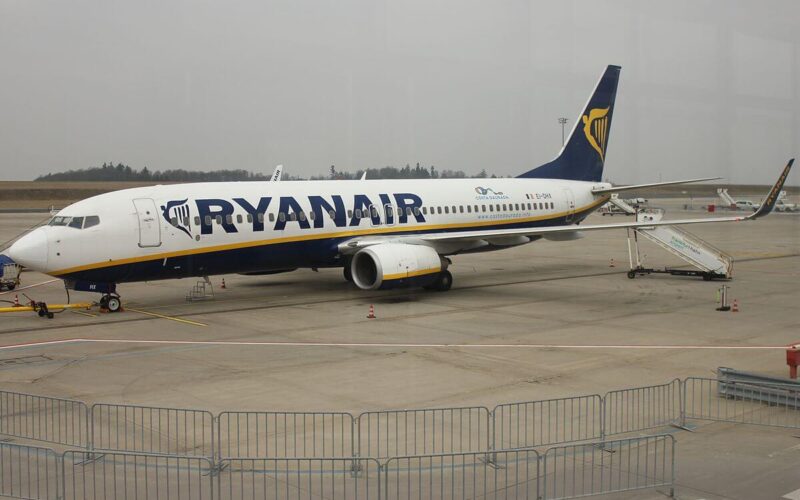After posting €20 million net profit loss, Ryanair is now planning serious structural changes to be more like IAG, while its leadership changes are coming soon.
Signals of brewing trouble were already visible in the previous financial period, but now Ryanair’s expenses have overtaken earnings. In its latest financial statement, the Irish airline reveals net profit drop of €20 million – and that’s not accounting further €46.5 million loss of Laudamotion.
Ryanair claims its “strong” traffic growth (of 8%) was offset by excess winter capacity in Europe, driving average ticket fares to a 6% decline. In addition, “While ancillary revenues performed strongly, up 26% in Q3, this was offset by higher fuel, staff and EU261 costs,” Ryanair CEO Michael O’Leary is quoted in a statement as saying.
The carrier offered similar observations in the previous financial period statement, when it had to admit a 7% slump in profitability. Back then, it pointed to excess capacity in Europe, ATC strikes/staff shortages in Europe, higher fuel, staff and EU261 costs.
“We cannot rule out further base closures or capacity cuts this winter if oil prices rise or air fares fall further. Winter trading may be positively impacted by the rate and timing of other airline failures which is already creating a ready supply of well trained pilots and cabin crew for S.19 growth,” the carrier’s statement on 1H financial results read.
Read more: What does Ryanair profit drop say about industry mood in Europe?
The last time Ryanair posted quarterly losses was in 2013. In the financial results statement of the third quarter of 2014 (a period which ended December 31, 2013), the carrier revealed €35.2 million loss. Within the following three months the airline was back into profitability and finished the financial year posting €522.8 million profit. The last time Ryanair ended the year in minus was a decade ago, when the carrier ended the 2009 fiscal year with €169.2 million loss.
Ryanair to have new CEO, O’Leary to remain on top
Ryanair has four brands under its umbrella: besides the low cost giant the group owns three new brands – Laudamotion, Ryanair UK and Ryanair Sun. Laudamotion was acquired in 2018, same year as Ryanair Sun, a Poland-based airline, began operators. Ryanair UK is the group’s “emergency airline” that would allow it to operate UK domestic routes and UK to non-EU routes in case of a no-deal Brexit. The airline announced receiving its UK AOC from the CAA on January 3, 2019, and already registered one Boeing 737-800 locally (G-RUKA).
Now, the company is planning to take a page from IAG’s book and impose “not dissimilar” group structure. The reasoning for the new structure, according to the company: “we believe this group structure will deliver cost and operating efficiencies, while enabling the group to look at other small scale M&A opportunities like the successful development of Lauda,” the statement reads.
All four brands are to have seperate management, meaning, that Ryanair – the airline – will have a new “replacement” CEO, who is to be appointed “later this year”. However, O’Leary is not going anywhere. Having just extended his contract until July 2024, he will now become Group CEO and continue to oversee all four airlines, with their respective CEOs.
As for the company’s board, Kyran McLaughlin non executive board member and David Bonderman (non executive chairman) are to remain until summer 2020, but “neither of them wishes to go forward or be considered for re-election at the September 2020 AGM”. Instead,
Stan McCarthy is taking up Deputy Chairman position starting April 2019, and will transition to Chairman of the Board in summer 2020.
Bonderman, chairman of the board since December 1996, is also a co-founder of a private equity investment firm TPG (formerly Texas Pacific Group). He has a number of roles at boards of TPG, CoStar Group, General Motors Company and 1996 Air G.P. , which owns shares of Ryanair.
McLaughlin, director since January 2001, is also deputy chairman and head of capital markets at davy stockbrokers and serves as a director of a number of other Irish private companies

